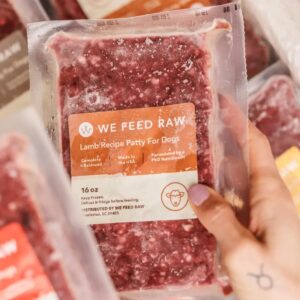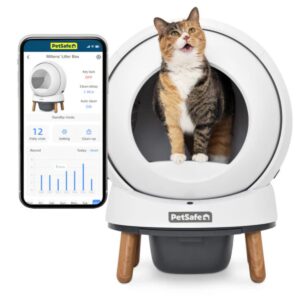When it comes to your pet’s health and happiness, nutrition plays a starring role. Whether you’re the proud parent of a curious cat, a playful pup, or even a cuddly rabbit, ensuring your furry friend gets a balanced diet is one of the best ways to support their overall well-being. But what does “balanced” really mean, and how can you supplement their diet without going overboard? Let’s dig in!
Why a Balanced Diet Matters for Pets
- Healthy Weight Management: Prevents obesity, a common issue that can lead to joint problems, diabetes, and more.
- Shiny Coat and Healthy Skin: A diet rich in omega-3 fatty acids and other nutrients helps keep their coat glossy and skin itch-free.
- Strong Immune System: Vitamins and minerals boost their ability to fight off illness.
- Increased Energy Levels: The right mix of macronutrients ensures they have the stamina to play fetch or chase laser pointers all day.
- Longevity: Pets fed a balanced diet often live longer, healthier lives.
How to Supplement Your Pet’s Diet Safely

Omega-3 Fatty Acids for Joint and Brain Health
Omega-3 fatty acids, typically derived from fish oil or krill oil, are a fantastic addition to your pet’s diet. These supplements are especially beneficial for senior pets suffering from arthritis or inflammation, as they reduce joint stiffness and improve mobility. They’re also vital for brain development in younger pets and can even enhance cognitive function in aging animals.
Beyond joint and brain health, omega-3s promote a shiny coat, prevent dry skin, and support heart health. Pets prone to allergies or skin issues often benefit from these supplements, as they can soothe inflammation and reduce itching.

Pro Tip!
If your pet balks at pills, opt for liquid fish oil that you can drizzle over their food. Start with small amounts to avoid overwhelming their palate and gradually increase to the recommended dosage.
Probiotics for Digestive Support
A healthy gut is the foundation of overall health, and probiotics play a key role in maintaining it. These supplements introduce beneficial bacteria into your pet’s digestive system, helping to balance their gut microbiome. Pets recovering from antibiotic treatment or suffering from frequent diarrhea, gas, or bloating can greatly benefit from probiotics.
Probiotics are particularly useful for pets with sensitive stomachs or food intolerances. They not only aid digestion but can also strengthen your pet’s immune system, reducing their susceptibility to infections.

Pro Tip!
Many probiotics come in powder form that’s easy to sprinkle over food. Choose a product designed specifically for pets, as human probiotics may not provide the right strains or doses for animals.
Glucosamine and Chondroitin for Joint Health
As pets age, joint wear and tear becomes more noticeable, especially in large dog breeds and cats with arthritis. Glucosamine and chondroitin are popular supplements for supporting joint health, as they aid in cartilage repair, reduce inflammation, and improve joint lubrication.
These supplements are particularly beneficial for pets with hip dysplasia or other degenerative joint conditions. While you won’t see immediate results, regular supplementation can slow the progression of joint issues and improve your pet’s quality of life over time.

Pro Tip!
Pair glucosamine with omega-3 fatty acids for a comprehensive joint health plan. Look for chews or treats that include both to make supplementation easy and enjoyable.
Multivitamins for General Health
Pets on homemade diets, raw food diets, or those with specific health conditions might not get all the nutrients they need from food alone. A multivitamin can act as a safety net, ensuring they get a full spectrum of vitamins and minerals. These supplements can improve energy levels, bolster immunity, and support organ function.
It’s important to choose a multivitamin tailored to your pet’s species, age, and health status. For instance, puppies and kittens require different nutrient levels than senior pets. Always consult your vet to make sure the multivitamin you choose aligns with your pet’s dietary needs.
Pumpkin for Digestive Health
Pumpkin is one of the easiest and most natural ways to improve your pet’s digestive health. Packed with fiber, it helps regulate bowel movements, making it equally effective for pets with constipation or diarrhea. It’s also rich in vitamins A, C, and E, which support immune function and overall health.
Pumpkin is gentle on the stomach and safe for most pets, making it a go-to remedy for minor digestive issues. It’s also a good low-calorie option to add bulk to meals for pets who need to lose weight.

Pro Tip!
Stick to plain canned pumpkin—nothing with added sugars, spices, or other ingredients. A teaspoon or two a day is usually sufficient for small pets, while larger dogs might need a tablespoon.

Signs Your Pet Might Need Supplements
If you’re wondering whether your pet needs supplementation, watch for these signs:
- Dull coat or excessive shedding
- Low energy or lethargy
- Stiffness or limping
- Digestive issues like frequent diarrhea or constipation
- Unexplained weight changes
Before adding any supplements, consult your veterinarian. Over-supplementing can sometimes do more harm than good.

FAQs
Can I give my pet human supplements?
How do I know if my pet’s diet is balanced?
Are natural supplements better?
Can I give my pet too many supplements?
How long does it take to see results from supplements?
Conclusion
You May Also Like...
Keep your dog safe while they explore with top GPS collars and virtual fences. From advanced tracking to adaptable boundaries, find the perfect solution here!
10 Best Dog Food Delivery Services of 2024
You know that choosing the right dog food is absolutely vital to your pup’s health and happiness, but with busy schedules, getting top-quality meals can be a challenge.
Best Self-Cleaning Litter Boxes for Cats
We’ve reviewed the top self-cleaning litter boxes to help you find the perfect one for your cat. We’ve ranked the best options based on performance, design, and ease of use.
Author
-
Hi there! I'm Nicole! I've been a pet owner for most of my adult life and an animal lover for much longer than that. I grew up with a wonderful German Shepherd named Jake, who I loved SO much that I named my son after him. When I'm not writing for DogVills or my own site, Pretty Opinionated , I love spending time with my teenager (when he actually lets me), my Pharaoh Hound Freya and a slew of cats. I'm also an avid reader AND a total TV fanatic. If you'd like to learn more about me, feel free to check out my Linked In profile.





